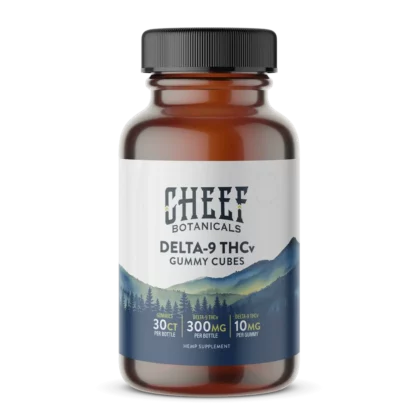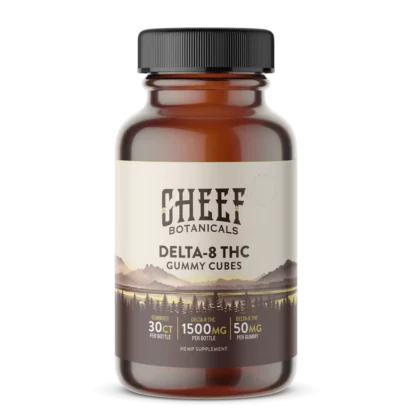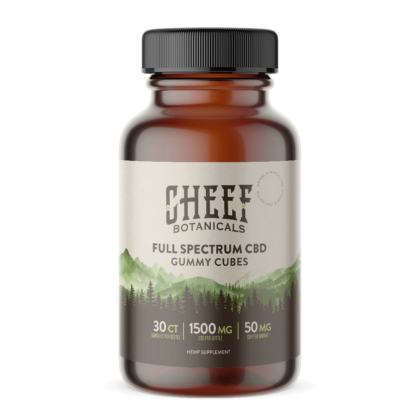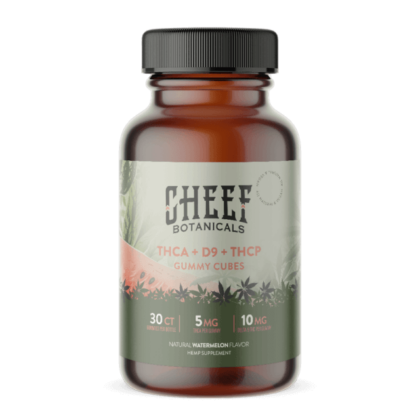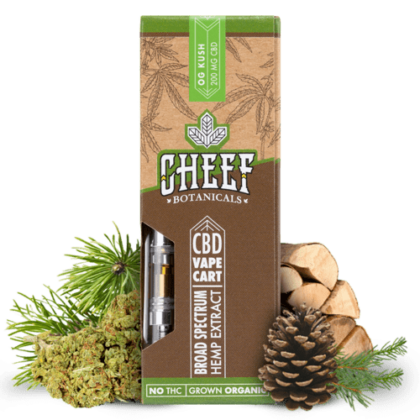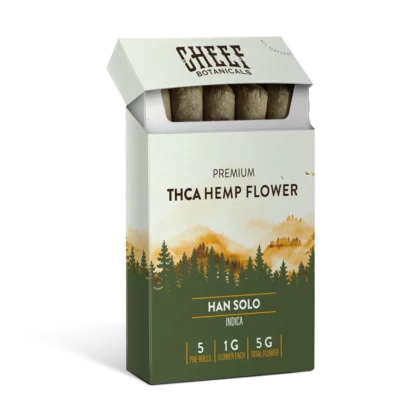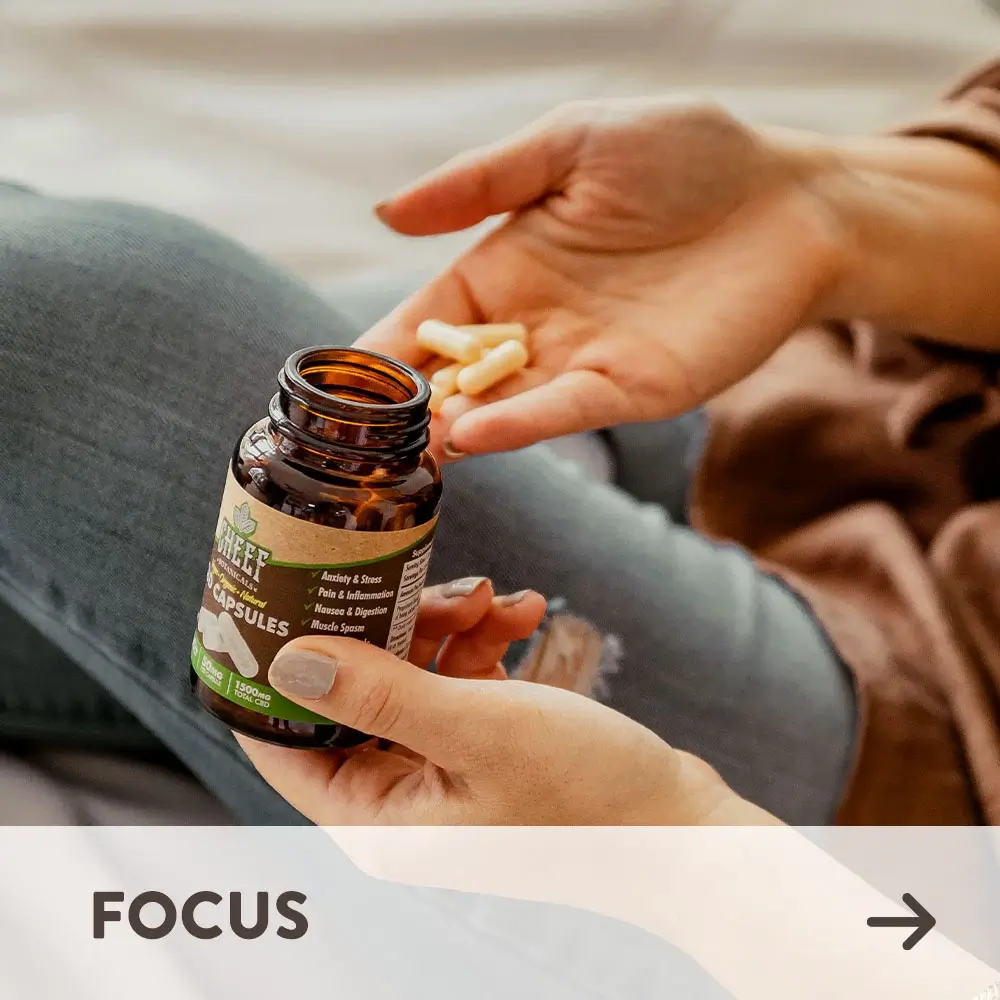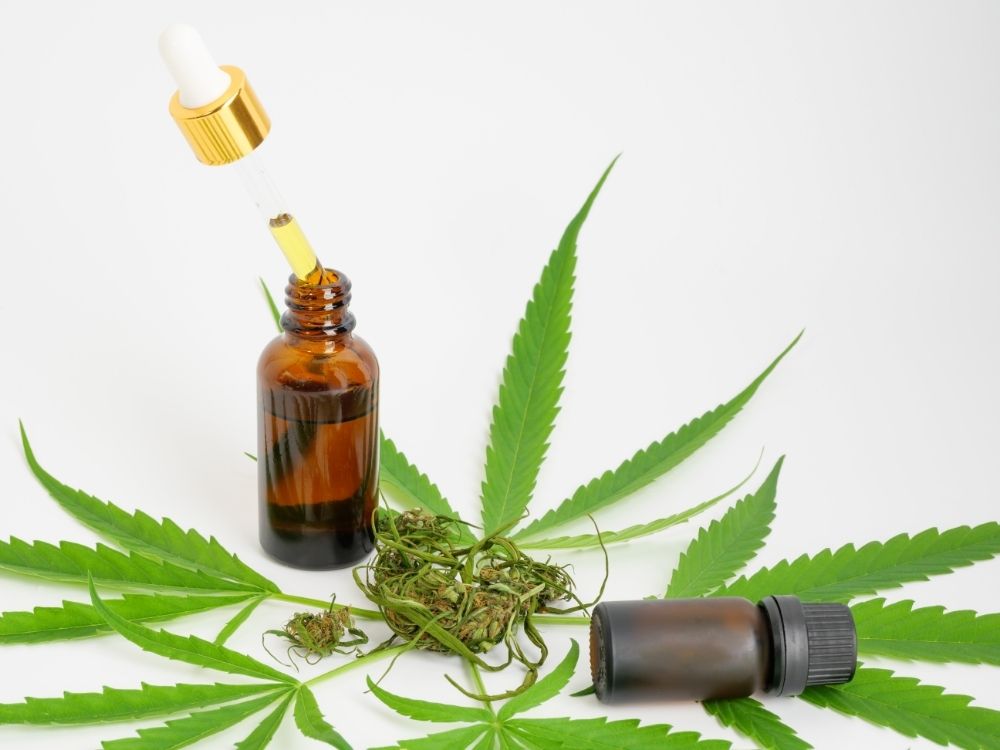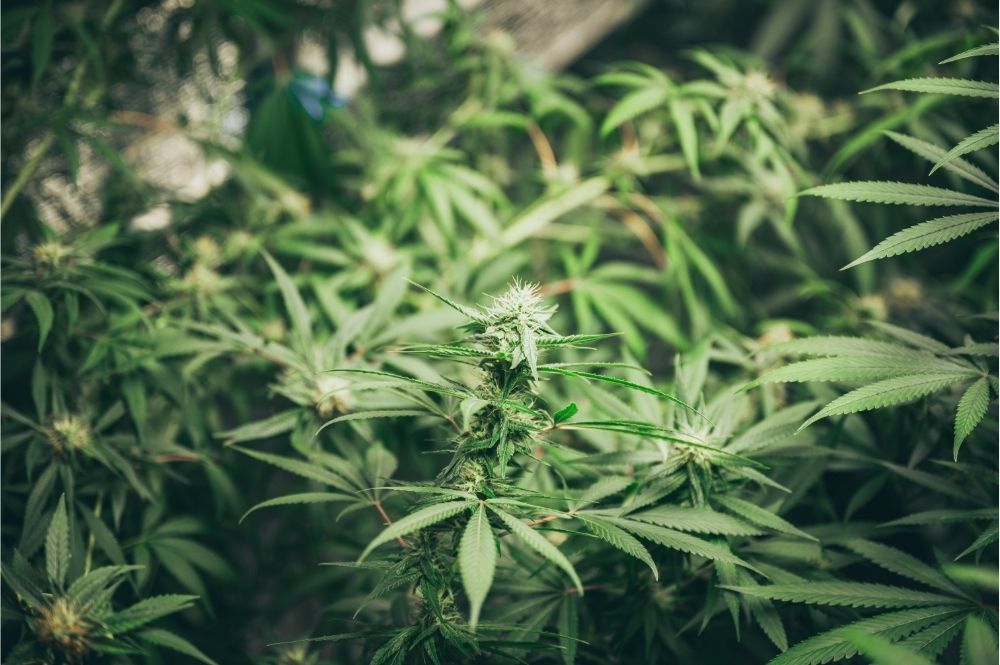-
Shop
-
By Benefit
-
Discover
- Which Product Is Right For You?
CBD vs CBN: Benefits and Uses of CBD and CBN
There are over 100+ different cannabinoids found in cannabis plants. You may have already heard of CBD (cannabidiol) as a popular holistic treatment for your ailments, but have you heard of CBN (cannabinol) and its effects? And what are the differences (and similarities) between CBD vs CBN?
CBD and CBN both have different origins, benefits, and uses. We’ll cover some of the benefits of CBD and CBN, as well as their uses and differences. You’ll know the difference in a bit, trust me!
What is CBD?
CBD is short for cannabidiol. It’s a naturally occurring cannabinoid found in the hemp plant (one of over a hundred that have already been discovered). People have been using CBD for its many benefits as early as 2737 BC when Chinese Emperor Sheng Nung was documented using CBD in his tea to boost his health.
Even though CBD has been used throughout history, it was not recognized by the modern medical community due to a lack of research. Researchers in the early 1800s investigated the benefits of hemp and found that it had potential medical applications.
In 1942, the first CBD compound was isolated by American chemist Roger Adams. Although CBD is not meant to cure any illnesses or diseases, it has many positive effects on our overall health and well-being in both body and mind.
Is CBD Legal?
Yes, CBD is legal! When the Farm Bill passed in 2018, it legalized the production, manufacturing, growing, selling, buying of hemp and hemp-derived products. According to the bill, all hemp and hemp products must have 0.3% or less THC to stay legal. Any product that contains over 0.3% THC is considered marijuana, which is still illegal federally.
Even though CBD has been legalized, each state may have different policies regarding consumption or purchasing. Remember to check your state’s laws regarding CBD and always be careful when transporting across state lines!
What Are the Benefits and Uses of CBD?
CBD products have grown more and more popular over the years due to the many benefits of taking CBD. CBD interacts with the receptors in your body’s endocannabinoid system (ECS), which controls your overall well-being and balance. The ECS contains all of your major systems, including the digestive, immune, and nervous systems. Since all of these systems have receptors, CBD has a positive impact on your body and mind. Here are some of the most common benefits of CBD:
Minimize Physical Discomfort
CBD is often taken after a tough workout or long day at work because it can soothe physical discomfort, including aches and soreness. You can also use certain CBD topicals to help with muscle recovery and soreness relief.
Improve Skin Blemishes
Speaking of CBD in a lotion, CBD has found a lot of popularity in the beauty industry. That’s because research has supported that CBD reduces skin irritation and blemishes. So you’ll feel rejuvenated and soothed when using CBD for your skin.
Reduce Negative Feelings
Studies have found that CBD changes the way our brains interact with serotonin, reducing negative feelings. This includes feelings of anxiousness, nervousness, frustration, fear, and anger. In addition, CBD can melt away feelings of stress, leaving you feeling clear-minded, energized, creative, and focused.
Promote Better Sleep
While you can take CBD in the morning to help you take on the day’s exercise, errands, and projects, CBD can also be taken before bedtime to feel relaxed and even sedated. But more than that, CBD can help you maintain a regular sleep schedule. And the sleep itself will also be deeper and more satisfying. You’ll wake up feeling refreshed and motivated.
Regulate Appetite
CBD may reduce symptoms of an upset stomach, including queasiness and vomiting. When you aren’t feeling unwell, it’s easier to eat healthily and stay active. You’ll feel balanced when you take CBD regularly.
What is CBN?
CBN, or cannabinol, was the first naturally occurring cannabinoid found in hemp. CBN was first isolated into its pure form back in 1896. Around that time, people thought CBN got people high but later learned that it was THC.
The average hemp plant contains less than 1% CBN in its cannabinoid profile. Isolating CBN goes through the complicated CO2 extraction process, but because there are so few amounts of it, it can take longer to collect enough.
When THC is exposed to heat and light, it slowly turns into CBN. Older or more mature hemp plants usually have more CBN present since it’s had more heat and light exposure. When CBN enters our system, it binds with the CB1 receptors at one-tenth of the strength of THC. However, CBN is non-intoxicating and doesn’t have any psychoactive side effects.
CBN is one of the cannabinoids that CBD products include for the “entourage effect.” The entourage effect states that all the compounds (cannabinoids, terpenes, and flavonoids) found in hemp work together to boost each other’s benefits for a more impactful and potent experience.
Is CBN Legal?
Yes, CBN is legal! Like CBD vs CBN, cannabinol is not on the list of scheduled controlled substances in the United States. Scheduled substances are highly regulated by federal law, and possession is often met with fines or imprisonment. There are five different categorizations of scheduled substances, and CBN is not within any of them!
CBN can sometimes be confusing. THC is considered a Schedule 1 substance under federal law. Even though CBN comes from THC, it is not considered a controlled substance because it’s not as strong and doesn’t leave you feeling intoxicated. However, if the entire product contains over 0.3% THC, it is considered a THC marijuana product, which is still illegal.
What Are the Benefits and Uses of CBN?
CBN vs CBD may sound similar, but they are both entirely different cannabinoids with different benefits. Here are the most common uses and potential benefits of CBN.
Better Sleep
CBN is well known for its sedation and calming properties. Research has shown that CBN can be used with THC to enhance the feelings of sleepiness and sedation. Since CBN comes from THC, the feelings of drowsiness are slightly increased but without the psychoactive, mind-altering effects.
Reduces Discomfort
Like THC and CBD, CBN can help reduce discomfort whenever you are suffering from physical ailments. CBN helps release peptides (a short chain of amino acids) from your sensory nerves, allowing your aches to fade away.
Appetite Stimulant
Research has shown that CBN may be a potential appetite stimulant. You might have experienced “munchies” or an increased desire to eat when consuming THC. CBN can be a non-intoxicating alternative to THC-based appetite stimulants.
Are There Side Effects to CBN?
There are currently no known side effects to CBN. That’s mostly due to a lack of research into CBN’s effects and benefits. While you won’t get high from CBN, some possible side effects (very mild!) you might experience are:
- Mild headaches
- Dry mouth
- Drowsiness
- Diarrhea
What Are the Differences Between CBD Vs CBN?
While CBD vs CBN have a lot of similarities, these are two different cannabinoids! Here are some things to keep in mind when choosing between CBD and CBN.
Origins
CBD vs CBN have two separate origins. CBD is already found in the hemp plant, while CBN results from the THC in the hemp plant being exposed to light and heat. The amount of CBN in a hemp product depends on how old the hemp is since it’s a product of degradation. There is more research on CBD than CBN. For this reason, a lot more about CBD’s components and benefits are known.
Interaction with THC
Neither CBD nor CBN has intoxicating effects and shouldn’t get you high, but both interact with THC differently. However, CBD can counter or reduce some of the negative effects of THC. Many people use it to come down from a high or even stop using cannabis altogether.
CBN, on the other hand, can enhance the effects of THC. You may need to feel extra relief or desire the euphoric effects of THC, and CBN can give a little boost to your sleep.
Interaction with Receptors
Both cannabinoids interact with your body’s receptors in our body’s ECS in a different way. CBD does not attach to the receptors directly, which is why it won’t alter the senses in any way.
CBN does bind to the receptors directly but at 10% the strength of THC. Some people might consider CBN a psychoactive compound, but it’s very rare to feel intoxicated from CBN alone.
Sleep Stimulation
While CBD can promote rest and help users sleep deeper, CBN is the clear winner when feeling sedated. People can use CBN in place of cannabis to get a better night’s sleep without the negative side effects of being high.
Product Variety
The CBD market is currently a lot larger and more varied than the CBN market. CBD comes in many forms, from oils and capsules to gummies and honey sticks to bath bombs and lotions.
CBN is a bit newer when it comes to research and use, meaning you won’t find many product options out there. Some brands might carry CBN oil, capsules, or a hybrid of both CBD and CBN for the ultimate soothing experience.
Since CBN itself is harder to extract, CBN-related products may be more expensive than your typical CBD product. Remember to research the products on your own and read the reviews from other customers to determine whether something is high quality or not!
Final Thoughts – CBD Vs CBN
When comparing CBD vs CBN, both are cannabinoids found in hemp, but also very different compounds. CBN is great for promoting deeper sleep, while CBD might be better for reducing negative feelings or discomfort. Depending on your ailments, conditions, needs, and preferences, you may find one cannabinoid more beneficial than the other.


